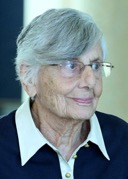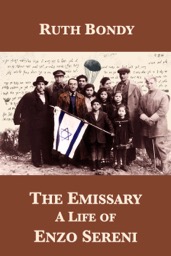
In 1943, she was sent to Auschwitz-Birkenau’s Czech family camp and in July 1944, roughly one month after the Czech family camp’s liquidation, Bondy was transferred to Hamburg as a worker clearing debris from allied bombardments. A short time later she was sent to Bergen-Belsen, where she was liberated, weighing 35 kilograms. Following a miraculous recovery from typhus, Bondy returned to Prague, where she joined a unit of Jews determined to fight for Israel’s independence, arriving in Haifa on December 31, 1948.
Once in Israel, she learned Hebrew and began working as a Hebrew teacher and as a reporter for Omer, a newspaper for new immigrants. In 1953 she became a columnist for Dvar Hashavua, the respected weekly magazine of the daily newspaper Davar. Bondy wrote over twenty books, including four biographies, the first of which, The Emissary: A Life of Enzo Sereni appeared in 1973 and won the Yizhak Sadeh Prize in 1974. It was followed by a profile of Jacob Edelstein, the chairman of the Theresienstadt Council of Elders. Bondy intended this biography to change the negative attitude of Israelis towards Holocaust victims. Bondy translated more than 50 books of Czech literature into Hebrew, including Jaroslav Hašek’s The Good Soldier Schweik, works of Karl Čapek, Milan Kundera, Bohomil Hrabal and many others. She also translated Kamarad, one of the children’s newspapers in the Theresienstadt Ghetto.
In 1981 Bondy became a member of Sovlanut, a non-partisan movement for tolerance and the prevention of violence, but distanced herself from the group in frustration in 1995, after the assassination of Yitzhak Rabin. Bondy, who won the Sokolov prize for journalism, the Tchernichovsky prize for translation and the Prime Minister's prize for Hebrew literature, continues in her nineties to write nonfiction and to translate works from the Czech into Hebrew. (photo: Moshe Shai)
Click on the cover for details about the eBook:




